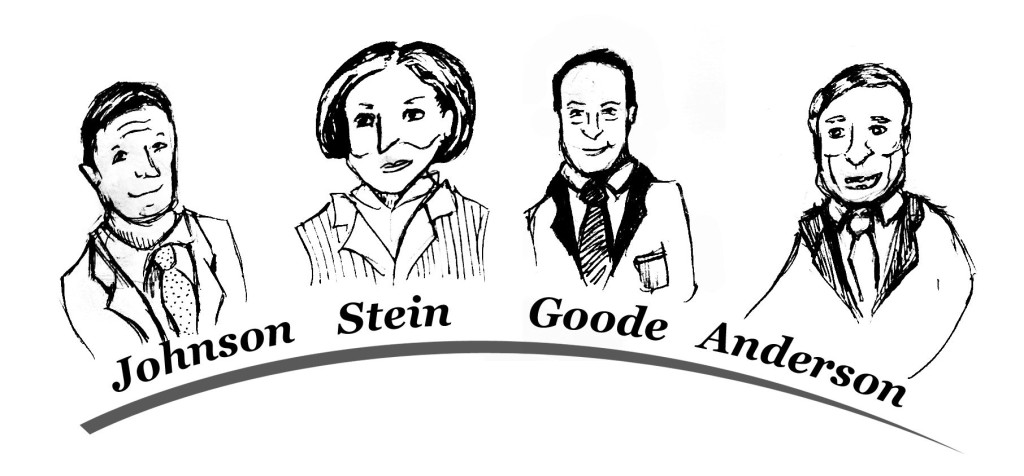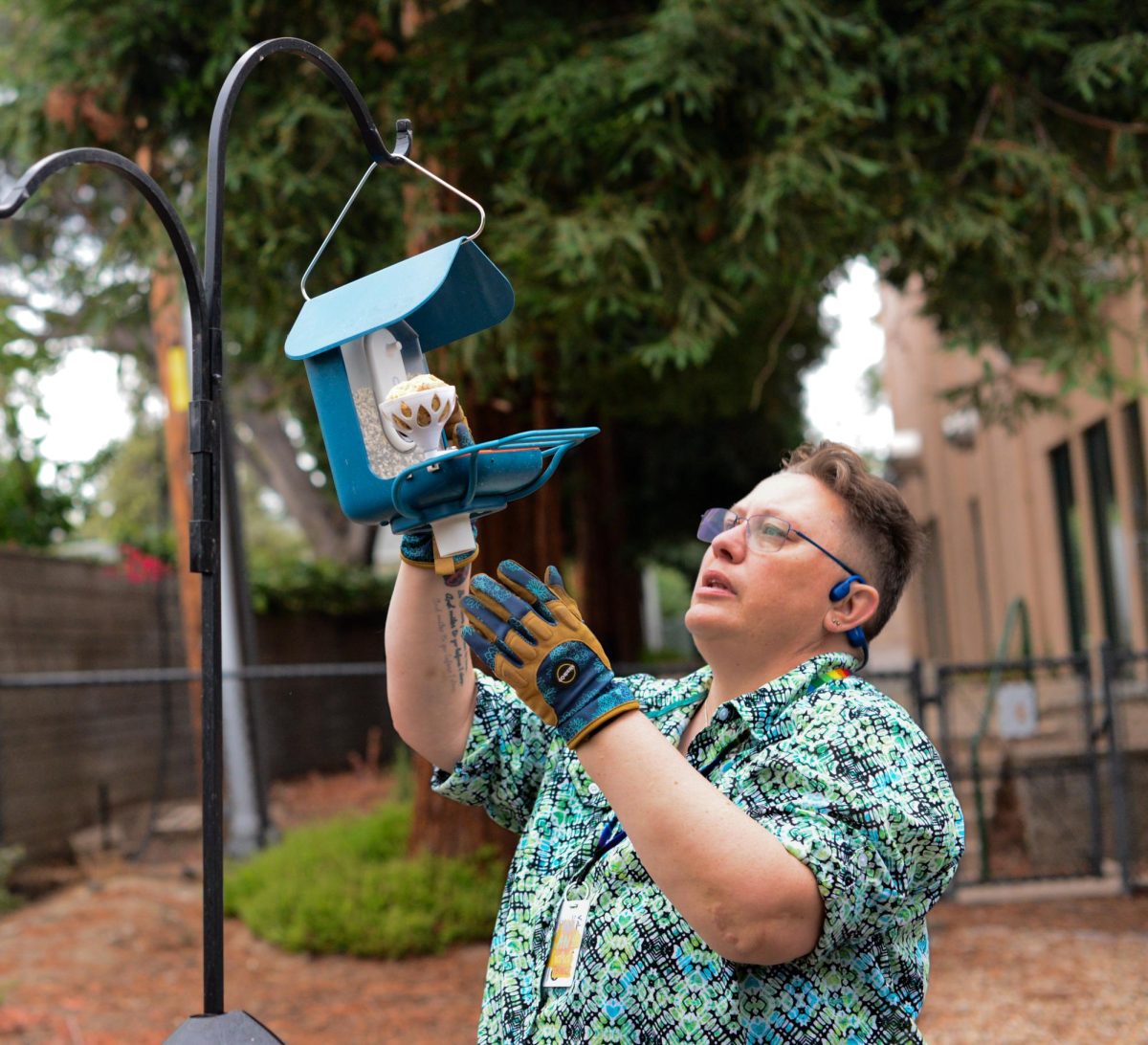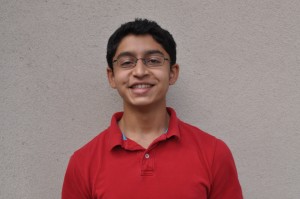As the national spotlight shone on two men this week, numerous independent politicians sparred for a slice of the limelight and the popular vote.
Apart from Democratic and Republican Party nominees Barack Obama and Mitt Romney, several other politicians ran for President of the United States as third-party candidates on individual platforms.
Two weeks ago, the day after the final presidential debate between Obama and Romney, the Free and Equal Elections Foundation held a debate for these oft-overlooked candidates. Gary Johnson of the Libertarian Party, Jill Stein of the Green Party, Rocky Anderson of the Justice Party, and Virgil Goode of the Constitution Party debated each other in an event moderated by former television personality Larry King.
“Voting for third-party candidates is silly, since most votes go to the Democratic or Republican Party,” Srikar Pyda (11) said. “Though they have good viewpoints, due to the two-party system, they won’t ever get elected.”
All of the prominent third-party candidates have significant political experience in either the legislative or executive branches. Johnson was a two-term governor of New Mexico from 1995 to 2003, and although he attempted to run for President as a Republican candidate, he was excluded from the GOP primary debates due to low poll numbers. He then withdrew his candidacy for the Republican nomination last year and began running for the Libertarian nomination.
Meanwhile, Stein ran unsuccessfully for governor of Massachusetts twice, and her only political experience comes from her time as a representative for Lexington’s town meeting. Anderson served as mayor of Salt Lake City between 2000 and 2008 as a member of the Democratic Party but switched his affiliation to the Justice Party last year. Between 1997 and 2009, Goode served six terms as a member of the House of Representatives from Virginia, switching his party affiliation between Democratic, Independent, and Republican through his service before joining the Constitution Party in 2010.
According to the Free and Equal Elections Foundation, a candidate must reach at least 15 percent in multiple national polls to be included in the debates. Since none of the four have reached that threshold, the foundation hosted a debate for the four of them to participate in so voters learn more about each candidates’ viewpoints on key issues.
Though none garnered an electoral college vote, Johnson was the leader among third-party candidates with around one percent of the popular vote, according to Google’s Election Tracker.




![LALC Vice President of External Affairs Raeanne Li (11) explains the International Phonetic Alphabet to attendees. "We decided to have more fun topics this year instead of just talking about the same things every year so our older members can also [enjoy],” Raeanne said.](https://harkeraquila.com/wp-content/uploads/2025/10/DSC_4627-1200x795.jpg)


















![“[Building nerf blasters] became this outlet of creativity for me that hasn't been matched by anything else. The process [of] making a build complete to your desire is such a painstakingly difficult process, but I've had to learn from [the skills needed from] soldering to proper painting. There's so many different options for everything, if you think about it, it exists. The best part is [that] if it doesn't exist, you can build it yourself," Ishaan Parate said.](https://harkeraquila.com/wp-content/uploads/2022/08/DSC_8149-900x604.jpg)




![“When I came into high school, I was ready to be a follower. But DECA was a game changer for me. It helped me overcome my fear of public speaking, and it's played such a major role in who I've become today. To be able to successfully lead a chapter of 150 students, an officer team and be one of the upperclassmen I once really admired is something I'm [really] proud of,” Anvitha Tummala ('21) said.](https://harkeraquila.com/wp-content/uploads/2021/07/Screen-Shot-2021-07-25-at-9.50.05-AM-900x594.png)







![“I think getting up in the morning and having a sense of purpose [is exciting]. I think without a certain amount of drive, life is kind of obsolete and mundane, and I think having that every single day is what makes each day unique and kind of makes life exciting,” Neymika Jain (12) said.](https://harkeraquila.com/wp-content/uploads/2017/06/Screen-Shot-2017-06-03-at-4.54.16-PM.png)








![“My slogan is ‘slow feet, don’t eat, and I’m hungry.’ You need to run fast to get where you are–you aren't going to get those championships if you aren't fast,” Angel Cervantes (12) said. “I want to do well in school on my tests and in track and win championships for my team. I live by that, [and] I can do that anywhere: in the classroom or on the field.”](https://harkeraquila.com/wp-content/uploads/2018/06/DSC5146-900x601.jpg)
![“[Volleyball has] taught me how to fall correctly, and another thing it taught is that you don’t have to be the best at something to be good at it. If you just hit the ball in a smart way, then it still scores points and you’re good at it. You could be a background player and still make a much bigger impact on the team than you would think,” Anya Gert (’20) said.](https://harkeraquila.com/wp-content/uploads/2020/06/AnnaGert_JinTuan_HoHPhotoEdited-600x900.jpeg)

![“I'm not nearly there yet, but [my confidence has] definitely been getting better since I was pretty shy and timid coming into Harker my freshman year. I know that there's a lot of people that are really confident in what they do, and I really admire them. Everyone's so driven and that has really pushed me to kind of try to find my own place in high school and be more confident,” Alyssa Huang (’20) said.](https://harkeraquila.com/wp-content/uploads/2020/06/AlyssaHuang_EmilyChen_HoHPhoto-900x749.jpeg)















